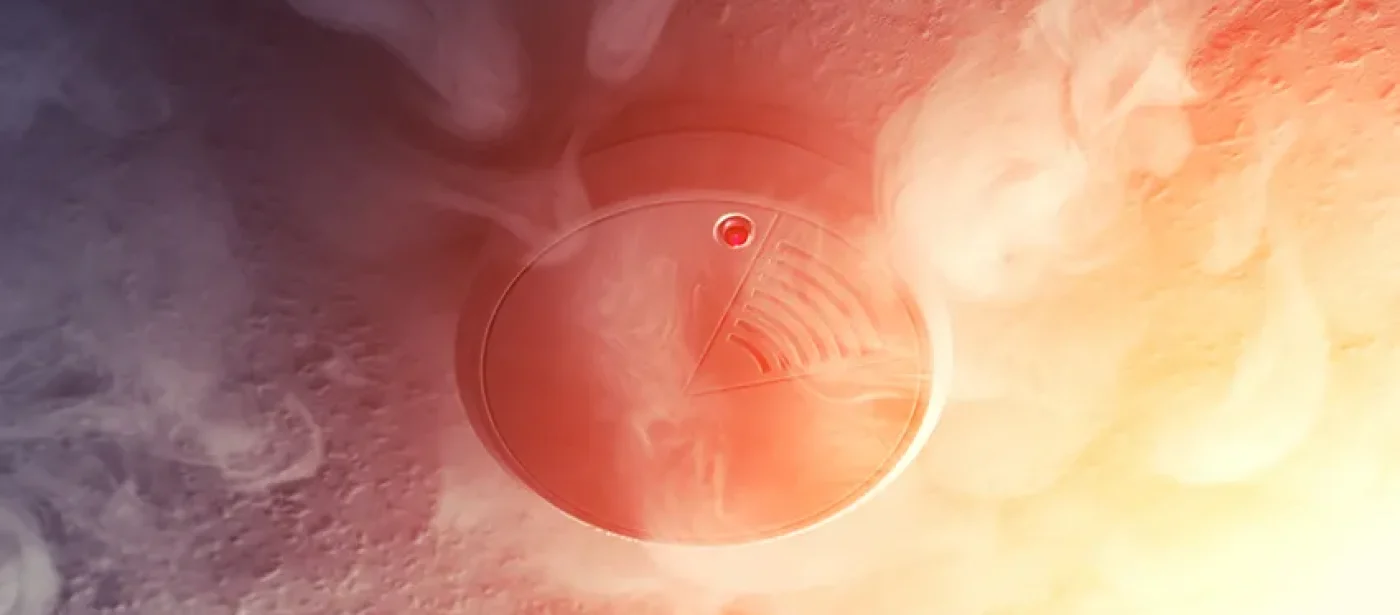What kind of smoke detectors are in your home? Did you know there’s more than one choice? If not, don’t worry! We’ve outlined and explained the different types of smoke detectors to help you make sure your home is safe.
Ionization Smoke Detectors
This type uses a small amount of radioactive material between two electrically charged plates to create a current between them and ionize the air. Smoke entering the chamber disrupts the current and sets off the alarm.
Pros and Cons
Ionization alarms are better at detecting the small smoke particles of fast-flaming fires, which are the most common type of home fires. However, they’re more easily triggered by burnt food and steam. This can lead to more false alarms if used near a kitchen or bathroom.
Photoelectric Smoke Detectors
Photoelectric smoke alarms use a light beam and light sensor for smoke detection. The light beam is directed away from the sensor. When smoke enters the chamber, it deflects the light onto the sensor and trips the alarm.
Pros and Cons
Unlike ionization alarms, photoelectric smoke alarms are best at detecting smoldering fires that create larger smoke particles with little to no visible flames. They’re less prone to false alarms but can be activated by dust buildup in the detection chamber.
Dual Sensor Smoke Detectors
Dual sensor alarms combine both ionization and photoelectric technology into a single alarm.
Pros and Cons
The combination awards you the best of both worlds, but the pros and cons will depend on the specific model. If the system requires both sensors to be triggered before activating the alarm, it could mean a delay in notifying you of the hazard. On the other hand, a system that requires only one sensor to be tripped could mean more false alarms.
Recommendations from the Pros
The different types of smoke detectors each have their value, as seen above. The U.S. Fire Administration (USFA) recommends using either both types or dual sensor alarms in the home as each technology (i.e. ionization and photoelectric) is better at detecting two “distinctly different yet potentially fatal fires.”
However, a study performed by the National Institute of Standards and Technology (NIST) showed that photoelectric alarms provide a “considerably faster response” to smoldering fires, while ionization alarms only provided a “somewhat better response” to fast-flaming ones. With that, the International Association of Fire Fighters (IAFF) recommends using photoelectric smoke detectors to protect your home. In the end, what’s best for your family is your decision, and we’re here to help. Stafford Home Service Inc. offers professional installation, inspection, and consultation of smoke and carbon monoxide detectors. Contact us to learn more about keeping your home safe.








